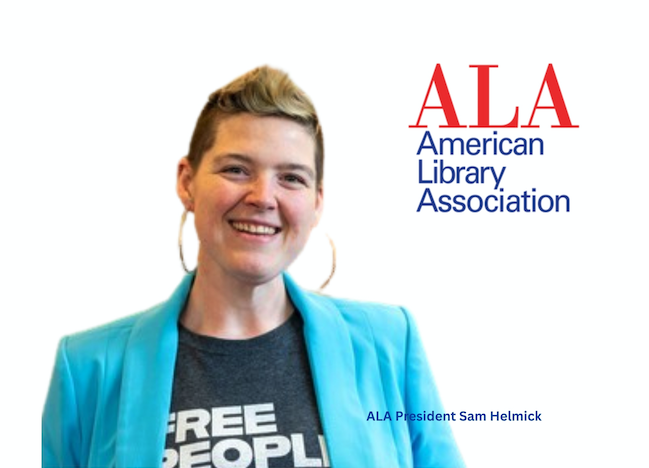ALA Clarifies That It Is Not Closing Access to Its Executive Board Meetings

It's only been a week since the American Library Association released its most recent strategic plan, but association leaders this week found themselves having to tamp down a brewing controversy. Contrary to language in an email announcing its strategic plan last week, ALA leaders have now confirmed that access to ALA executive board meetings will not be closed.
The episode began after a July 18 email from ALA president Sam Helmick announcing the plan appeared to reveal that, going forward, ALA Executive Board Meetings would be held in executive session—in other words, behind closed doors. Helmick's email led to a swift outpouring of objections from ALA members and veterans, including several ALA past presidents, who insisted that restricting access to ALA board meetings would violate existing policy and offend the profession's core values.
"President Sam Helmick’s recent announcement that the ALA Executive Board will begin conducting its meetings in executive session represents more than just a procedural change—it signals a philosophical shift that directly contradicts the association’s own established policies and the values librarians champion daily," wrote University of Delaware librarian and ARL past president Trevor Dawes, on his personal website.
According to Dawes—and several other ALA veterans who shared their responses with Words & Money—any decision to move ALA Board meetings behind closed doors would specifically conflict with ALA Policy 7.4.4, which states that ALA meetings should be "open to all members and to members of the press.”
ALA veteran and Emeritus Northwestern University Librarian Sarah Pritchard agreed, and responded with an open letter urging a reversal of the apparent change. "It is a significant denial of transparency and a reduction of access to information to make all Executive Board meetings closed," Pritchard wrote, "not values our association should promote."
But in a followup message to members this week, Helmick clarified that executive board meetings would not be closed, merely rearranged. For parts of the meeting where the board does need to be in executive session (for example, confidential matters concerning personnel or other sensitive legal matters) those topics will now be grouped at the beginning of the meeting.
That's significantly different than Helmick's initial message, which stated that, "in recognition of the scope and complexity of ALA’s legal, fiscal, and operational responsibilities," the ALA executive board, upon advice from a strategic planning firm, would "begin holding its meetings in Executive Session, followed by an immediate report to membership outlining key outcomes and decisions."
In fact, it turns out that the board will begin its meetings in executive session, rather than "begin holding" its meetings in executive session.
In a message posted to an ALA "past presidents" listerv, which was shared with Words & Money, ALA interim executive director Leslie Burger confirmed that the association's consultants recommended only that "items requiring confidentiality be moved to the top of the agenda" and "did not suggest the board meet entirely in executive session."
Burger, whose term as interim executive director will expire at the end of the month, also said that the reaction from members to Helmick's initial message was "unfortunate," and asked ALA members to "trust" that ALA's elected leaders "value member involvement and operate with all good intentions."
With ALA leaders confirming that executive board meetings will remain open, the misunderstanding is apparently cleared up. But librarians Words & Money spoke to said the reaction to the plain language of Helmick's initial announcement was not unreasonable. And, to Burger's point about trust, the reaction may also be a sign that, after some difficult years, ALA leadership—including its new executive director Daniel Montgomery when he starts on November 10—may need to address not only a financial deficit, but a trust deficit as well.


